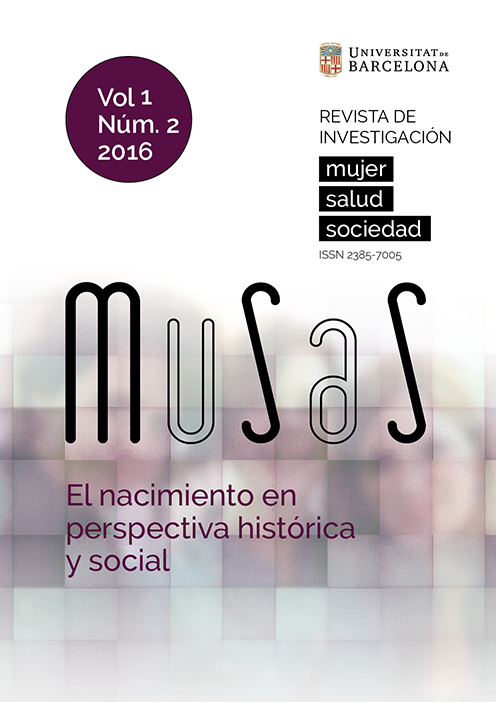HOW THE CHILDREN OF TARRAGONA WERE BORN. THE EVOLUTION OF THE MATERNITY CARE MODEL IN CATALONIA UNDER FRANCO
DOI:
https://doi.org/10.1344/musas2016.vol1.num2.7Keywords:
maternity, public policies, health care, midwivesAbstract
The present article reflects the changes in the models of care during pregnancy and childbirth that took place under the Franco dictatorship, using an ethnographic research model to analyse the historical processes. The data collected come from interviews conducted between 2010 and 2014 with eight midwives who exercised their profession in the province of Tarragona in the mid-twentieth century. We also consulted written sources left by local midwives and doctors as well as documents from the Historical Archive of Sant Pau i Santa Tecla Hospital in Tarragona.
In the first decades of the twentieth century, the traditional model of maternity care gave way to a more medicalized model in which the medical profession played a leading role.
The subordination of the midwives to the medical discourse was accepted and transmitted via their statutes. The control of their training facilitated and reinforced this subordinate position. However, the stories of the midwives interviewed focused more on the satisfaction of a job well done, highlighting their areas of independence and individual decision-making. Common features underpinning their experiences were a strong feeling of professional identity and a sense of professional pride.
Downloads
Published
Issue
Section
License
Authors publishing in this journal agree with the following terms:
- Authors hold the copyright, but MUSAS holds the right of first publication.
- Manuscripts will be disseminated with the Creative Commons CC BY-NC license, which allows sharing it with third parties as long as they recognize the authorship, the first publication right held by MUSAS and the license’s conditions






